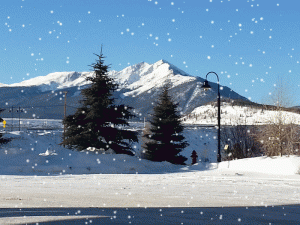 I just came back from a road trip from our home in CT to Las Vegas. My son moved there and he needed a car so I drove with him. It was a great trip. My wife and I did an unforgettable road trip in 1984 from NY City to LA and back. The route that my son and I took to get to Vegas had a lot in common with the route that my wife and I took coming back east in 1984. The variation in the landscape from Ohio to Nevada is amazing. The most breathtaking part for me is always the transition from Colorado to Utah to Arizona and Nevada. Whereas the time scale in which the nature changes is many orders of magnitudes slower, the technology around it is changing rapidly. But then, technology is not changing as rapidly in certain places, even in this country, one of the most advanced ones in the world!
I just came back from a road trip from our home in CT to Las Vegas. My son moved there and he needed a car so I drove with him. It was a great trip. My wife and I did an unforgettable road trip in 1984 from NY City to LA and back. The route that my son and I took to get to Vegas had a lot in common with the route that my wife and I took coming back east in 1984. The variation in the landscape from Ohio to Nevada is amazing. The most breathtaking part for me is always the transition from Colorado to Utah to Arizona and Nevada. Whereas the time scale in which the nature changes is many orders of magnitudes slower, the technology around it is changing rapidly. But then, technology is not changing as rapidly in certain places, even in this country, one of the most advanced ones in the world!
We left right after the big snow storm last thursday and the roads were pretty bad in CT as well as most of NY. Weather prediction technologies have become fairly sophisticated and we knew with fair certainty when the snow will end, so we could plan accordingly. The very first talk I gave in this country was a required talk for all PhD students in Chemistry. The subject of the talk is required to be not directly related to Chemistry. Because of my interests in computational methods, I chose the topic of weather modeling. The models that I spoke about at that time were being developed in National Oceanic and Atmospheric Administration. In simple terms, it involves solving complex differential equations and evaluating predictive values using advanced numerical methods. This requires prior values of many variables, dividing up the atmosphere into cubes and solving the equations within the cubes. Of course, you have to make sure that the values at the edges of the cubes are within the margin or error. Humongous number of calculations were done using the supercomputers (probably slower than the most powerful PCs of today) available then. Of course, the weather accuracy depended on how good the prior values are (these were reported by various weather stations) and how small a cube is. The smaller the cubes are, the better the accuracy can be, but it requires exponentially more computing power. Anyways, before I get carried away too much – even the simplest model in 1978/1979 required so much computer time that the predictions arrived 5 days after the weather had passed. Look where the technology has taken us now!